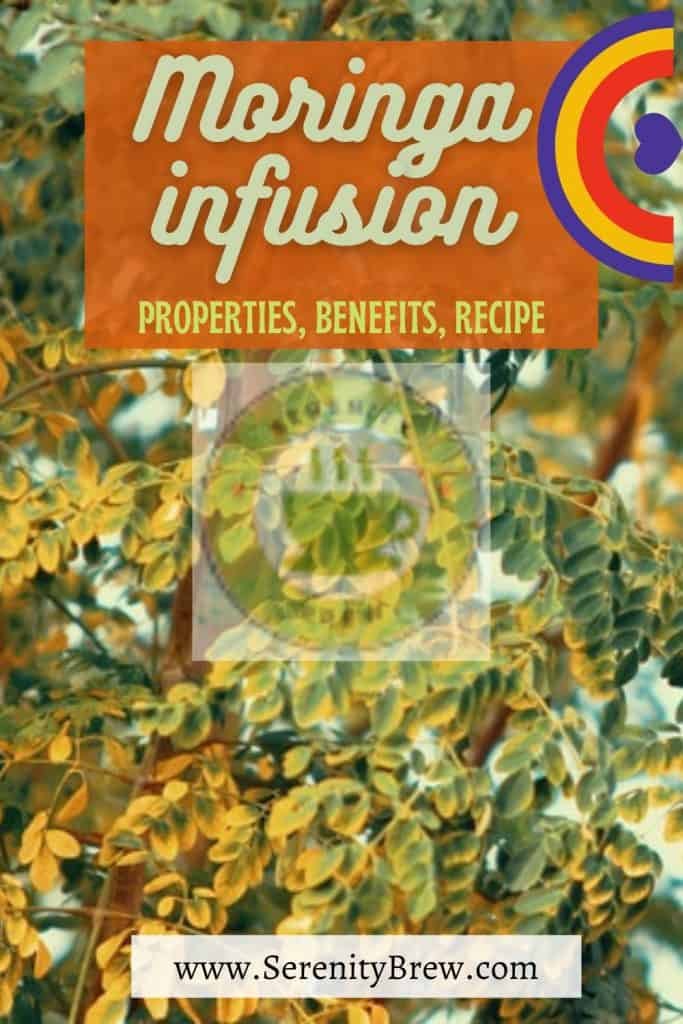
You probably don’t know what moringa is yet. Don’t worry, today we are going to talk about a little-known plant in this part of the world but which is given many uses related to health, gastronomy and even livestock and water purification in the places where it is grown. .
In this article, we are going to analyze the properties that moringa infusion can offer you to treat different problems and, of course, we are going to give you the recipe to prepare this drink.
What is moringa?
The moringa tree, whose full name is Moringa oleifera, is native to northern India. Famous for its health properties, it grows in extremely dry conditions and in almost any type of soil.
Its leaves are used both in gastronomy, where they are incorporated into smoothies or served as an accompaniment to meats, and to make high-quality oils (due to their richness in unsaturated fatty acids) and infusions that show a wide variety of health benefits.
Health benefits of moringa tea
Every year the number of people who consume infusions increases. Much has to do with the renewed interest in healthy living and alternative medicine that recommends natural options to treat different problems. Let’s discover together the properties of moringa.
Improved blood circulation
Moringa has a particular vasodilator effect that helps blood circulate properly throughout the body. In this way, its consumption contributes to the regulation of blood pressure.
Protects against heart disease
Linked to the above, we must mention that consuming moringa infusion reduces the risk of suffering from coronary diseases. This is because it would prevent the formation of accumulations of fat in the arteries, lower cholesterol and promote circulation, minimizing the risk of heart attack.
Antioxidant potential
Research noted that moringa has a powerful antioxidant effect; that is, it has substances (quercetin and chlorogenic acid) that fight free radicals, molecules that can damage the body and cause cardiovascular and degenerative diseases, and even cancer.
Drinking moringa infusion on a regular basis would help us combat the oxidative stress caused by free radicals and reduce the risk of suffering from different diseases.
Promotes weight loss
Specialists in natural medicine recommend its inclusion in diets to lose weight since moringa contains fibers. Data indicate that the fibers swell when they come into contact with gastric juices, generating a greater feeling of satiety and, therefore, reducing the desire to eat.
Blood sugar reduction
Different animal studies have suggested that moringa regulates blood sugar levels, preventing and/or controlling diabetes. In fact, research found that those who consumed 7g of moringa powder daily for 3 months reduced their blood sugar by an average of 13.5%.
Prevention of bone and tooth deterioration
Moringa leaves are rich in calcium (approximately 2,667 mg/100 g). This mineral is essential to form and protect teeth and bones and even prevent diseases such as osteoporosis. Remember that to improve calcium absorption you must also consume vitamin D or regularly expose yourself to the sun.
Anti-inflammatory and analgesic effect
Isothiocyanates present in moringa leaves, seeds, and pods are known anti-inflammatory compounds. For this reason, the intake of moringa tea is usually recommended for people suffering from osteoarthritis, arthritis, stiffness and any inflammatory process.
Improves digestion
Have you ever been recommended to drink moringa infusion to avoid indigestion and other digestive system problems? This is because it increases the amount of gastric juices allowing faster digestion and, as a result, less discomfort.
Fight against hemorrhoids
If you suffer from hemorrhoids, you may be interested in starting to consume moringa tea regularly. Its vasodilator effect improves blood circulation , while its anti-inflammatory property reduces the discomfort caused by hemorrhoids.
How to prepare moringa tea

The first thing we must clarify is that the so-called moringa tea is not a tea but an infusion. Some time ago we explained the difference between tea and infusion, which basically refers to the plant from which the leaves are extracted to infuse.
Teas always come from the Camellia sinensis plant, while infusions can be made with leaves of other plants, roots, flowers and even fruits. Therefore, in this case, we are talking about an infusion, not a tea. Now let’s see how to prepare moringa tea.
Ingredients
- 1 tablespoon of moringa leaves or powder (you can get them at your trusted herbalist).
- 1/2 liter of hot water.
- Optional: sugar or honey to taste.
Elaboration
- Bring the water to a boil.
- Add the moringa leaves and turn off the heat.
- Let stand for 5 minutes.
- Strain and add sugar or honey to taste. Enjoy!
Go ahead and enjoy the mild and pleasant flavor of moringa and benefit from its extensive health properties. You will not regret!
